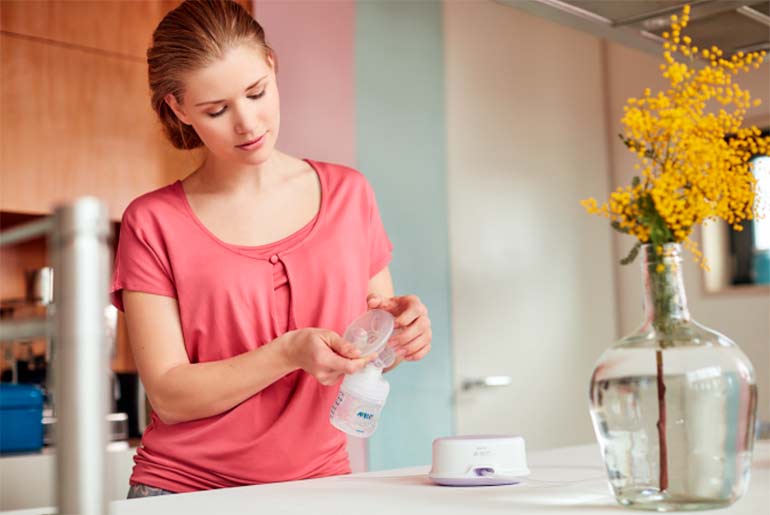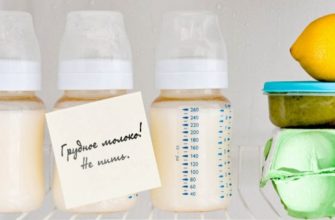Breastfeeding is a responsible choice for every mother and an important period in the development of the baby. Many prepare for this stage in advance and begin to look for useful information during pregnancy. In this article, we have collected 7 interesting facts about breastfeeding that every mom needs to know. Told about them Olga Leonidovna Lukoyanova, Leading Researcher, Federal State Autonomous Institution Scientific Research Center for Health of the Russian Ministry of Health.
1. Breast milk - free and healthy nutrition for the baby
Breast milk is the best mom can give the baby. It provides the child with all the nutrients that are necessary for his healthy growth and development in the first months of life. According to the results of numerous scientific studies and the opinion of the World Health Organization (WHO), mother's milk forms the baby's immunity, and also protects the child from infections and chronic diseases. WHO confirmsthat breastfeeding can reduce the mortality of newborns from common childhood infectious diseases. With all its benefits, breast milk is free - mom does not need to splurge on the mixture to provide her baby with the best and healthy diet. In addition, to prepare milk for feeding, you do not have to buy additional devices - it already has the right temperature.
Breastfeeding forms a close relationship between mother and baby, emotional contact is established between them, and the baby feels calm and protection.
2. Manual pumping is not always effective
It is generally accepted that manual decantation is much more efficient than using special devices. So our mothers thought, because they did not have high-quality breast pumps. Pediatricians usually recommend manual pumping technique it is on the first day of the baby’s life, believing that it helps to “decase” the breast correctly from the first days of lactation. However, studies confirm that pumping with modern breast pumps can be no less effective and more physiological, as it reproduces the baby’s natural mechanism for sucking a breast. Modern devices, such as those of Philips Avent, imitate two phases of a baby’s sucking: pumping, which provokes a rush of milk to the breast, and then sucking. This makes the process of hardware pumping as close to natural as possible and does not injure mom's breasts.
In turn, manual technique can be very useful when mom needs to massage and “decipher” a dense lobule of the breastwith lactostasis - because it’s just so easier to feel the chest and get rid of discomfort. However, it is worth remembering that such decantation needs to be learned, otherwise the process can be traumatic.
Currently, many mothers note that pumping becomes more sparing precisely when using a breast pump. Also, the breast pump is more convenient and effective in the case of the creation of stocks of breast milk - an individual milk bank.
3. Breastfeeding allows mom to remain mobile and active.
Many mothers refuse to breastfeed, because they believe that they will no longer be able to lead an active lifestyle. However, this is not at all true. Modern accessories for breastfeeding allow you to properly organize this process and remain mobile in any circumstances.
Today, special devices for breastfeeding are developed on the basis of clinical data and taking into account the creation of additional comfort for women during pumping. It has been clinically proven that the more the mother is relaxed, the more active the flow of milk will be.
Modern solutions for breastfeeding make it easy to create a "home" bank of milk - it is decanted using a breast pump, and then stored in special containers or bags. Breast milk remains fresh and retains all its beneficial properties up to 24 hours in the refrigerator and up to 3-6 months of storage in the freezer. A pre-prepared stock of breast milk will allow mom to provide her baby with all the necessary nutrients in any circumstances.
4. The baby will not give up breasts due to bottle feeding
Often, mothers are afraid that the baby will refuse to breast, if at least once to feed him from a bottle. However, studies prove that if mom properly organized the process of breastfeeding, then short-term bottle feeding will not change the baby’s habits. It is important to take into account that bottle feeding should not be regular and should be carried out only if necessary: for example, if there are special medical indications or if mom needs to go away for a short time.
In this case, it is also important to choose the right bottle - you can pay attention to the bottles of the Avent Natural series: their wide nipples follow the shape of the female breast.
5. Nightly breastfeeding is helpful.
The hormone prolactin, which is responsible for the production of breast milk, is actively released at night. That is why mom can feel the tides several times a night. To avoid lactostasis, it is important not to resist the natural process - it is necessary to apply the baby to the chest and at night or, if he sleeps, to express. For this reason, doctors do not recommend skipping night feedings breastfeeding and do not take breaks at this time for more than 3-4 hours.
6. Dummy can be used regularly
It is widely believed that giving a baby a dummy is often harmful. However, doctors claim that during the first few months of life, you can and even need to offer a baby a dummy. When lactation is only established, the mother should put the baby to the breast as often as he wants, i.e. by his requirement. However, a child’s anxiety may not always be related to hunger. Therefore, if the baby asks for the breast very often or does not calm down even after feeding, in these cases you can use the dummy on a regular basis. Here, the most important thing is that the mother properly organizes breastfeeding and feels the baby's needs, correctly evaluates his behavior and emotions.
7. Breastfeeding is possible for longer than a year
Many people believe that breastfeeding is necessary only during the first year of life - later milk becomes "empty" and does not bear any benefit. Pediatricians give different advice: some offer to feed up to a year, others up to one and a half years and longer. However, there is a specific WHO recommendation - breastfeeding is possible for up to two years.The European Society of Pediatricians believes that the duration of breastfeeding is determined strictly individually, and the mother-child couple should decide for themselves. It is important to know that in the second year of lactation, milk retains all its beneficial properties and remains a good source of valuable nutrients.
We also read:











I know for sure that a breast-fed baby is more healthy than a baby-fed bottle. Breast milk is much healthier and more valuable, as nature intended.
I would love to feed a child up to a year. But we had a problem that we both did not solve in the hospital, and it did not work out afterwards. My baby slept very well and did not suck. I had to express and feed from a bottle. And even from it, he could suck for hours without waking up. Perhaps it was worth at least once to give him a hunger strike?
Well girls, you give! Why listen to the medical staff? The child is not theirs, but yours. Because you have to think with your own head.
Is the child sleeping? That's good! What kind of monsters forced to wake up? When he wakes up, then there will be feeding. And he wakes up in an hour or in 4, his business.
This is the “on demand” mode.